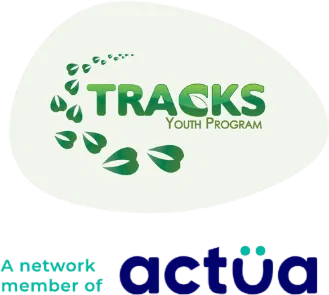Insights about our 2023 Summer Camps
Teaching Indigenous Knowledge
Throughout the week of camp at TRACKS, children are constantly exposed to Indigenous Knowledge, allowing for learning and reflection moments. There are daily smudging ceremonies in the tipi, games, and activities where campers learn Anishinaabemowin words like Makwa (bear), Ma’iingan (wolf), Ajidamoo (squirrel), Aamoo (bee), and day-to-day words that they are constantly hearing like Aaniin (hello) and Miigwech (thank you), water teachings from an Elder and fire teachings from a Fire Keeper, as well as the telling of Indigenous stories like how the bat came to be, and teachings about the Three Sisters and the importance of reciprocal relationships.
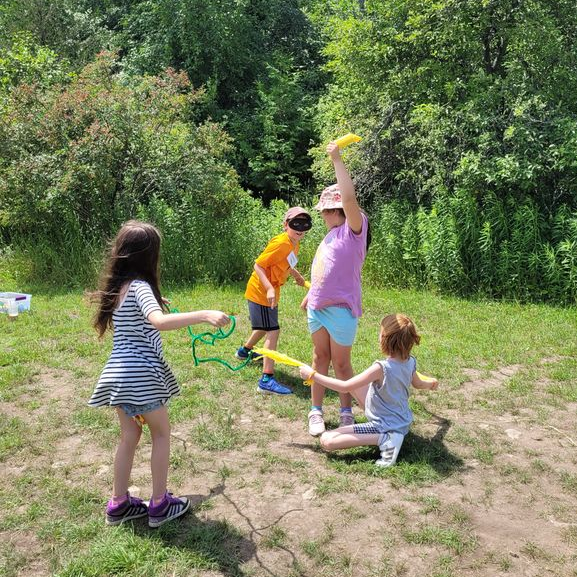
Parents mentioned that one of the highlights of TRACKS camp is having the staff, Elders, and other Knowledge holders sharing Indigenous teachings with their children. This positive reaction to Indigenous Knowledge can also be seen in campers, who were proud and excited about learning and sharing Indigenous Knowledge. Several campers were eager to get home and share words in Anishinaabemowin they did not think their family knew, like memengwaa (butterfly). They were also proud of their successful attempts at making fire thanks to the teachings of a Fire Keeper.
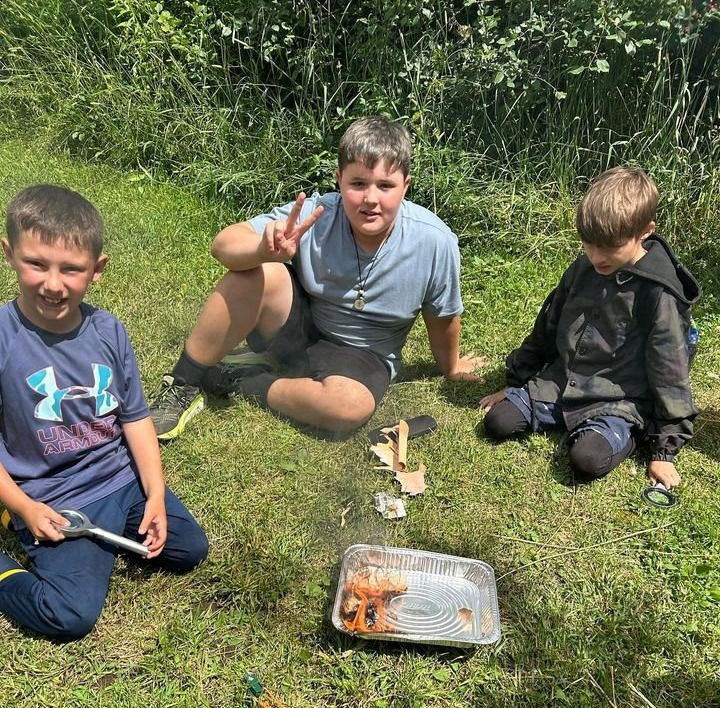
One of the effects of providing a space for Indigenous and non-Indigenous children to learn Indigenous Knowledge together during camp is fostering dialogue between them and the staff. For instance, when one of our staff shared that English was her second language, campers explained that at school they first learned English and then French. This led to a discussion about why they had to learn the languages they had to learn at school, with some campers arguing that it was the language of others and not their own. An Indigenous camper then asked, “Why aren't we a part of the history of Canada?” as she felt her language and, therefore, her people were being ignored at school. Deep reflections happened during this week of camp, with a camper stating, “The second language we should learn at school is Ojibwe.” Considering that 60% of the campers last summer were non-Indigenous, teaching Indigenous Knowledge and opening space for conversations is an excellent opportunity for them to listen to others’ stories and broaden their understanding of Indigenous Peoples.
Fun and Exciting Activities
Parents commented on their campers’ happiness and excitement through the week: “I liked seeing my camper come home happy every day, and excited to go back” and mentioned that the highlight of the camp for them was “How happy they were when we picked them up every day. Reports with smiles :).” Staff also commented on campers’ enjoyment: “Every day, I heard campers talk about the fun they were having, especially during pick-up when they were eager to tell their guardians about their day!”. As for the campers, “We do fun games and activities”, “I like playing games”, “The wolf game”, “Games!” and “I liked the camp because it is fun and you learn stuff” were some of the highlights they mentioned during the week of camp.
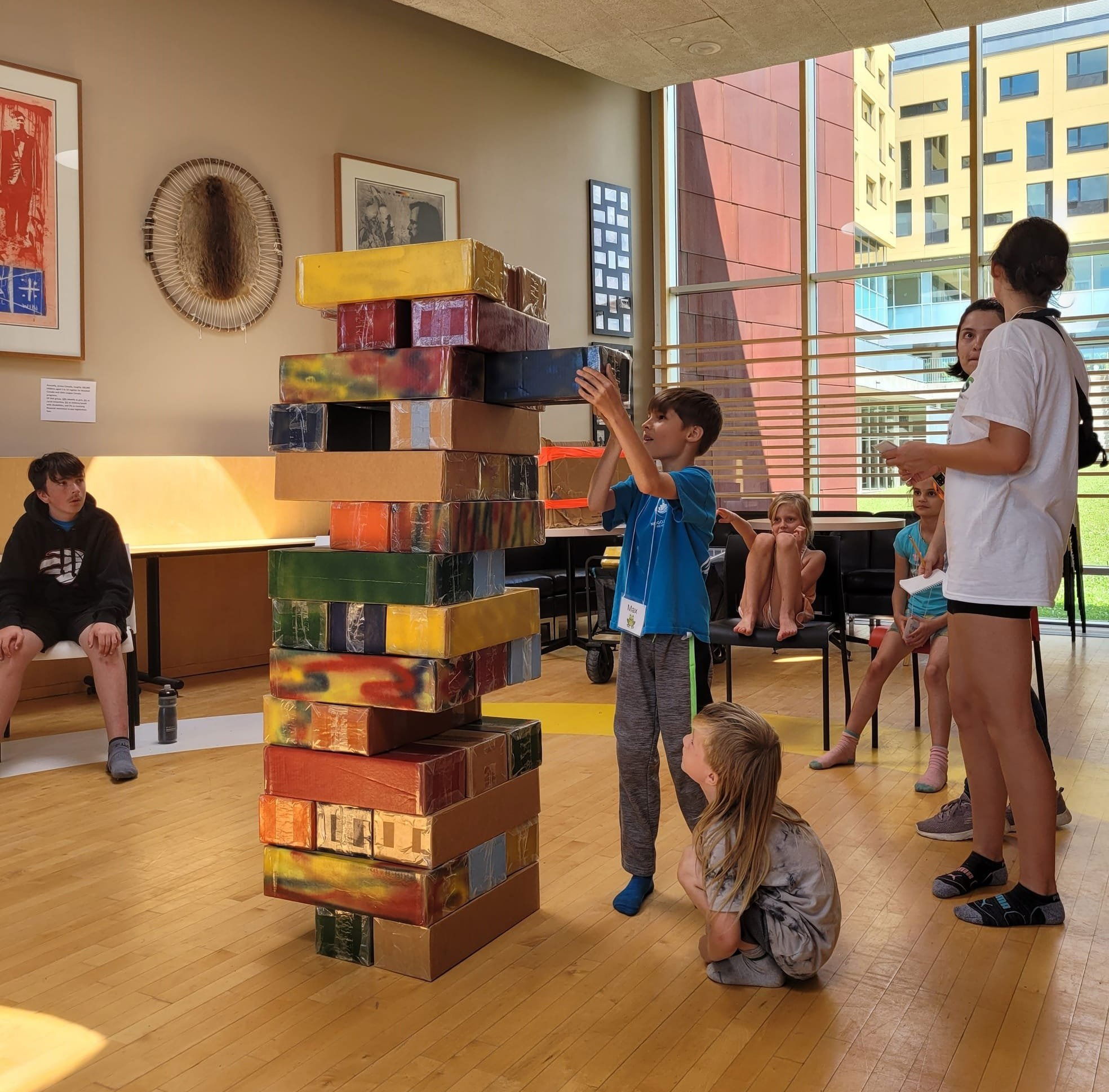
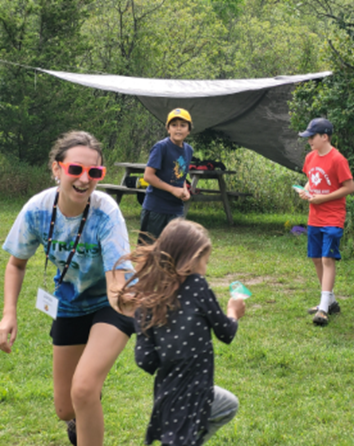
Fostering Relationships
Parents and campers agree that TRACKS camp provides a space for friendships to blossom. One camper shared, “I get to meet new people and see friends I met before.” While another camper explained, “I enjoyed spending time with all of the people there! I made new best friends who like to have fun like me!” In their surveys, parents acknowledged that one of the things they liked most about TRACKS camp was how staff made their campers feel.
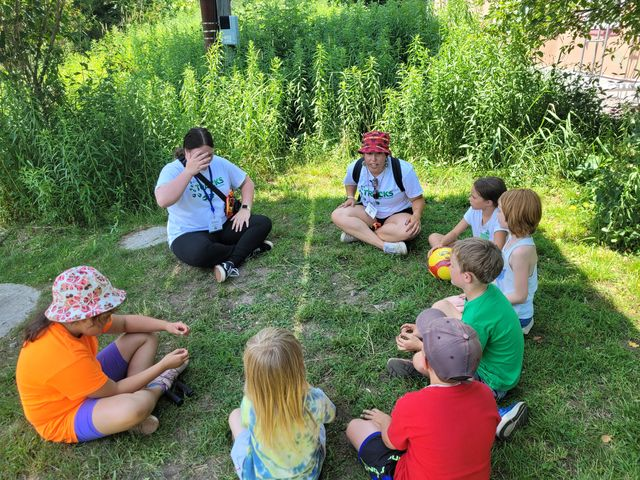
A parent shared that after the week of camp, their campers “[…] were sad when it was over because they missed their counselors, who obviously made them feel seen and safe and valuable during their time together.” Another parent commented, “I appreciated, so much, how respectful and genuinely kind all of the camp counselors are.”
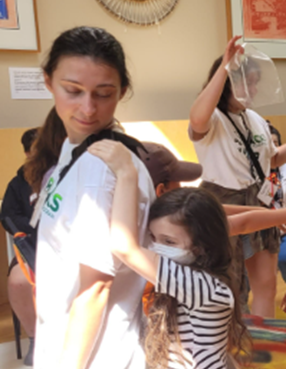
Besides the relationships between people, TRACKS camp nurtures relationships with nature. While sharing lunch time with chipmunks, saving snails, listening to birds, singing to the water, and learning why reciprocity between us matters, a value for kinship and respect is fostered.
Connecting with Nature
The camp instructors mentioned that campers had some really powerful insights, thoughts, experiences, and behaviours to share about respecting nature throughout the week: “The campers showed lots of respect towards the insects by treating them gently. They also knew the importance of insects, and even though they are small and we are big, both our lives are very important.” Another staff member shared that one of their highlights was that: “Campers showed respect for Nature. When we went on the bird walk, some campers were being rowdy and loud, and before I said anything, some other campers asked them to lower their voices to be respectful towards the forest beings like trees and animals.”
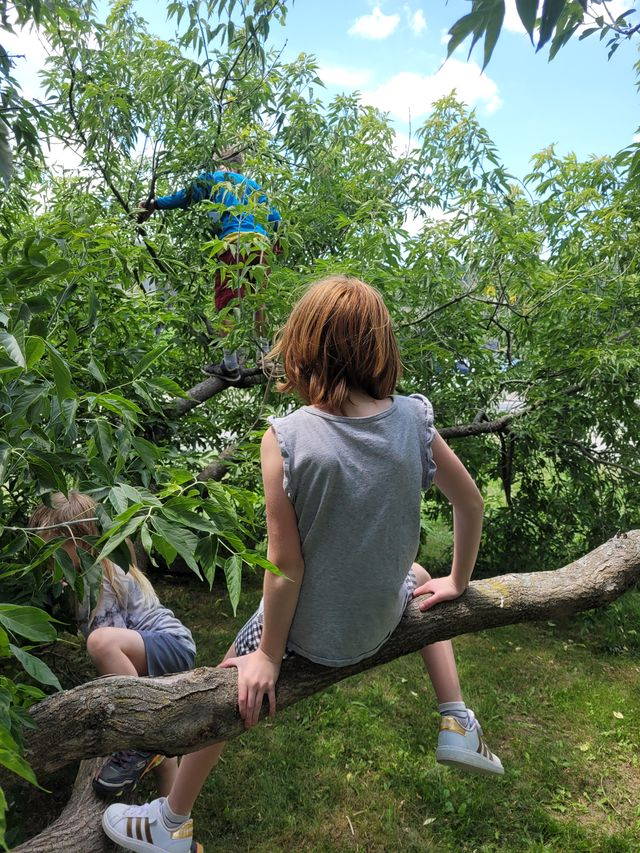
After a rainy day, campers were given 30 minutes to explore and go in pursuit of insects. Before starting, one of the young campers advised everyone: "You don't shake the bug in the cup; bugs are sensitive little creatures." Once it was time, some campers preferred to go on their own, others formed teams to catch as many insects as possible, while others decided they were going to save the snails from being crushed on the sidewalk. When the activity ended, some campers decided to have a ceremony to release the insects, while the saving snails squad said goodbye to each of the 26 snails individually.
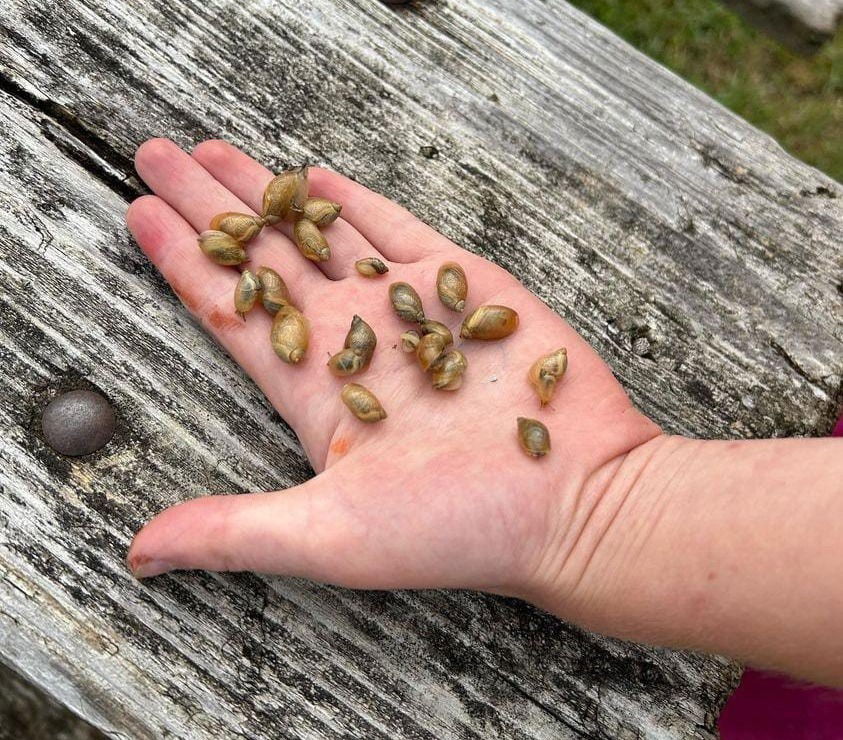
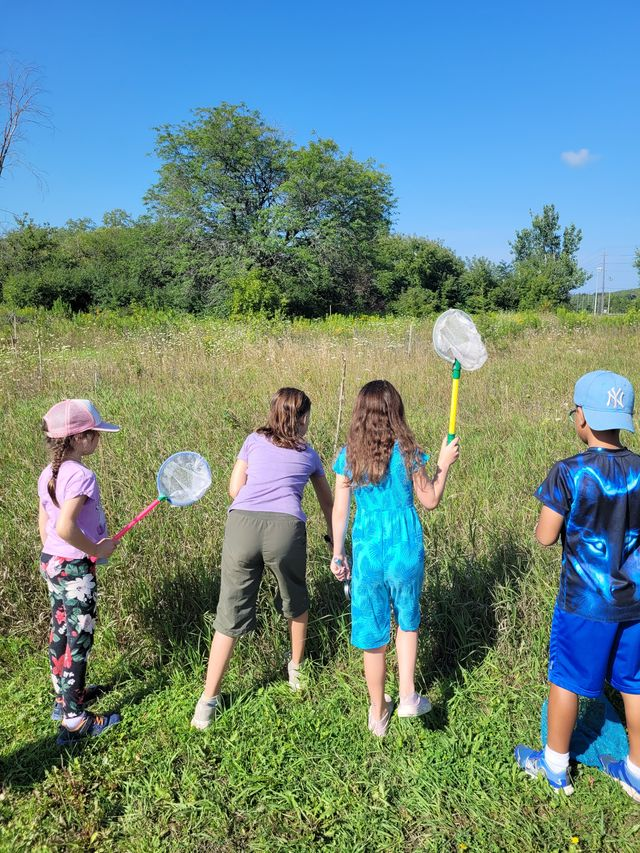
Miigwech for your support!
